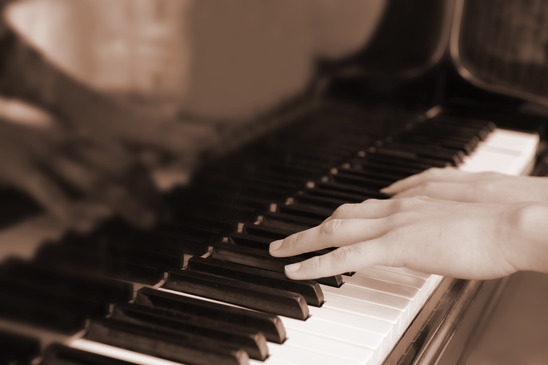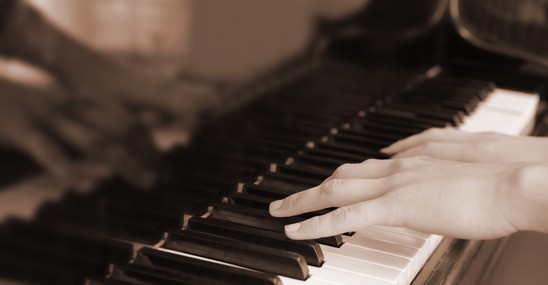The only way to get better at playing the piano is practice. But how do you practice the piano if you have a hand injury?
If your hand injury comes from outside activities – a broken hand or wrist do to a sports related injury for instance – there is nothing you can do but let it heal in the appropriate amount of time.
 But if your hand injury comes from piano playing – and ideally you should practice regularly in a consistent way that doesn’t lead to injury – the first thing to deal with is the how.
But if your hand injury comes from piano playing – and ideally you should practice regularly in a consistent way that doesn’t lead to injury – the first thing to deal with is the how.
When you are facing pianistic challenges and your stress and tension levels are too high, it is possible to push too hard, and find yourself with a stress related injury. Carpal tunnel syndrome and tendonitis are just two of the many repetitive motion related injuries a pianist may face over time.
While only a doctor can truly give you medical advice and help you to relieve your pain, there are ways you can effectively deal with any muscle strain or small hand injury.
First discover what is causing your hand injury.
Do you have tension in your arms when you play? If your arms are tensed, your elbows or wrists rigid and immobile, your risk increases of developing a hand injury. Tension can be a sign of poor posture. Make sure you have proper placement at the piano, including a bench or seat appropriate for your height.
Are you practicing on a regular basis? Remember when you went and lifted weights at the gym for the very first time? You were still and sore afterwards. The same can happen to a pianist who practices irregularly for months, then crams in session after session leading up a week or two before a performance. Stress occurs when you do things too intensely.
Do you play with your fingers, or with your entire arm? If you move only your fingers when you play the piano, your arm, including wrist, elbows and shoulders can become stressed in the process.
Are you approaching practice in the right way? If you have psychological tension, or a negative attitude when you sit down to play, it can come out in your methods and approach. State of mind controls everything. Never start to play if your heart and mind aren’t in it. Not only can it affect your performance, it can literally effect your health.
Next, change your approach to piano playing.
Stop practicing once you face a hand injury. You must give your hand time to rest and heal before you move back into playing action.
Resume your practice gradually. Make it a regular part of your week, not something you do on the spur of the moment.
Fix anything you discovered wrong with your routine. If you need a new bench, buy one. If you need to change your routine, change it. If you change your approach now, you’ll gradually increase your success overall. And have a new appreciation for your approach to piano playing.


